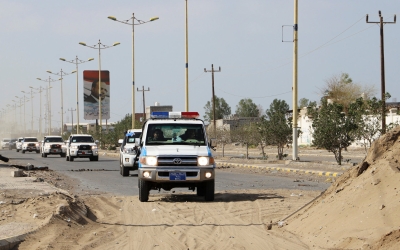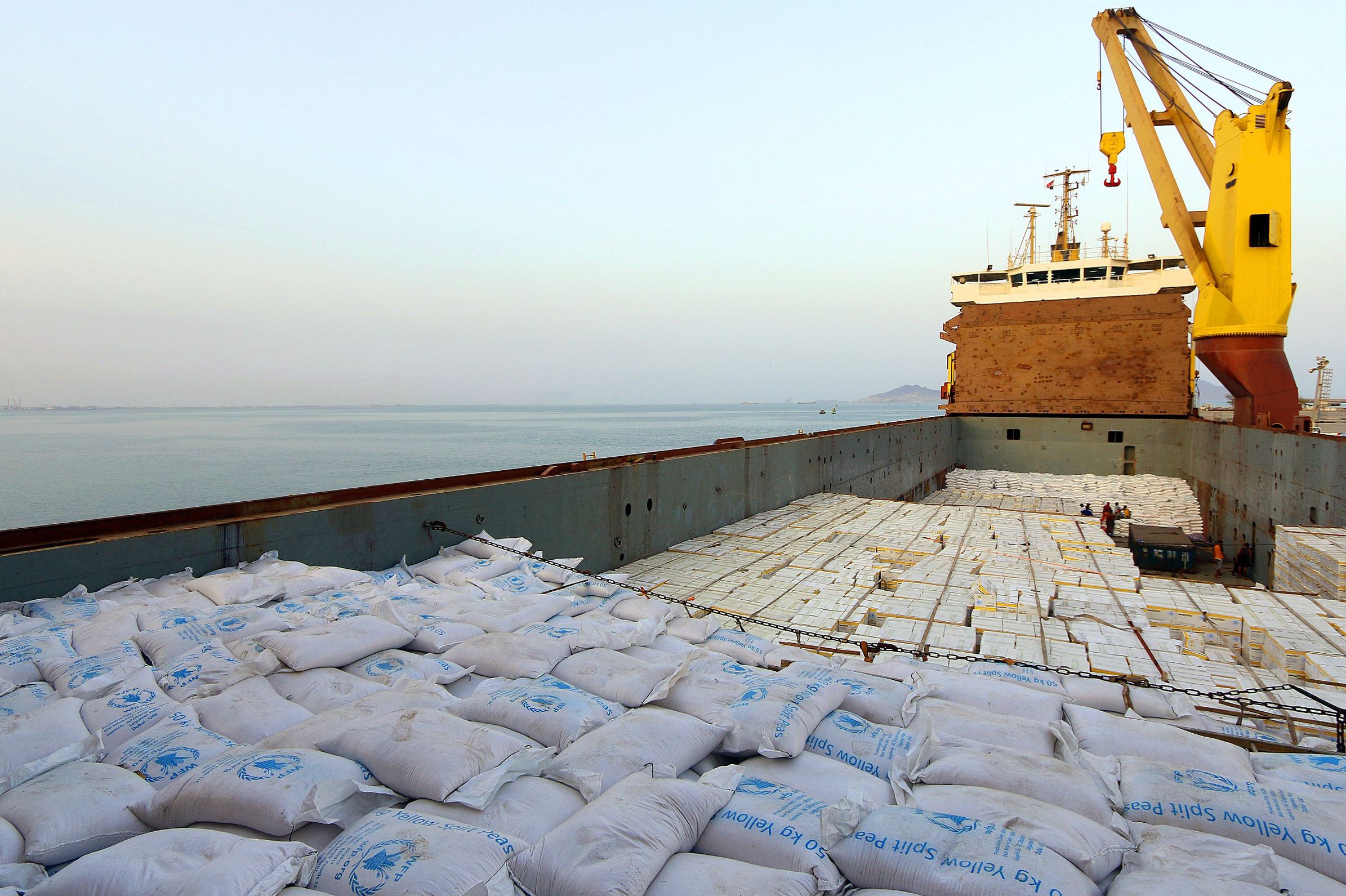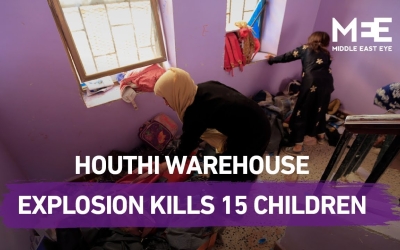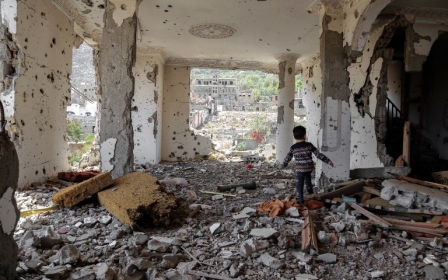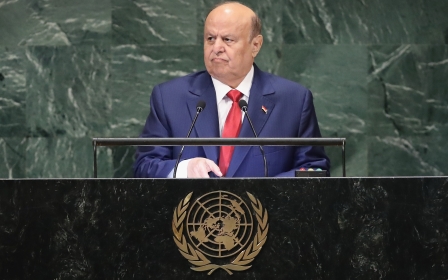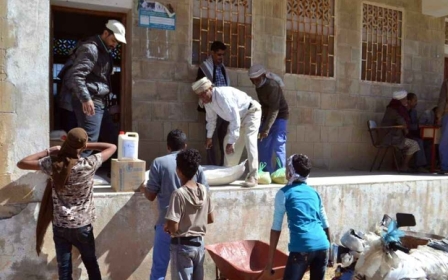Yemenis in Sanaa panic over WFP's threat to suspend aid services
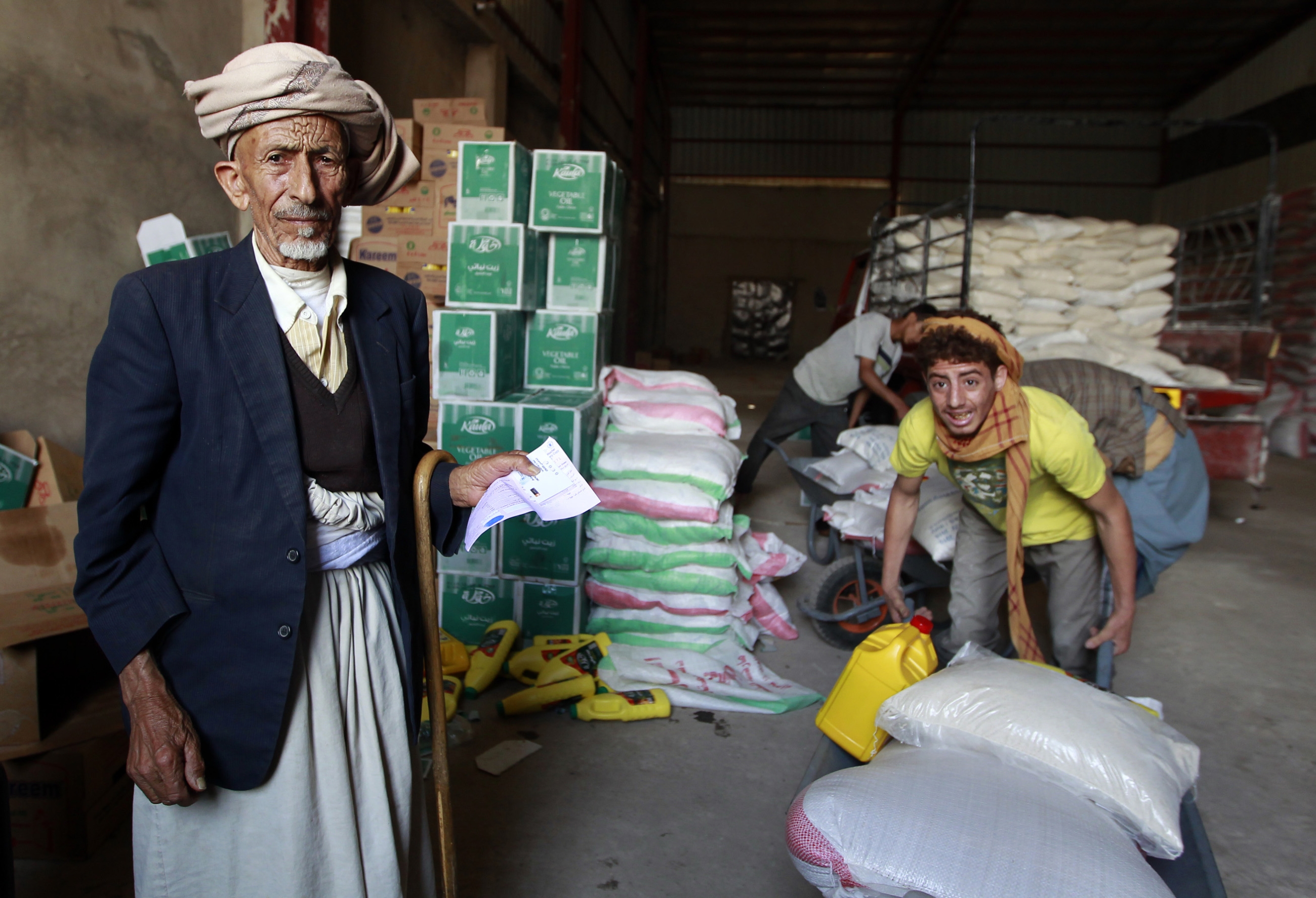
Life for Hani Alawi is hard. But if it wasn’t for the World Food Programme, it would be even harder.
Alawi, a 49-year-old father of five, lives in north Sanaa’s Shamlan neighbourhood and struggles to eke out a decent living for his family.
He is a teacher in a local school, but hasn’t received his salary regularly since August 2016 and has resorted to selling vegetables in a nearby market.
"What I get from selling vegetables does not exceed 1,000 rials [$2] per day and this is hardly enough to pay rent," Alawi told Middle East Eye. "I forced my children to sell ice cream in school to cover their needs, as I cannot pay for everything."
In circumstances like these, any help Alawi and his family can get is vital, and WFP food rations have been a lifeline.
"I have been receiving monthly food baskets from WFP since early 2017 and we depend on that food," Alawi said. "If not for that aid, we would die.”
That assistance, however, is under threat.
Last week, the WFP said it is considering suspending aid delivery in the areas under the control of the Houthi movement because of fighting, insecurity and interference in its work.
"Humanitarian workers in Yemen are being denied access to the hungry, aid convoys have been blocked and local authorities have interfered with food distribution," the United Nations agency said in a statement. "This has to stop."
The WFP is feeding more than 10 million people across Yemen, including Houthi-held Sanaa.
According to Alawi, all his colleagues receive monthly food baskets from the agency, reducing their suffering and allowing them to continue teaching at schools.
"Almost all teachers in public schools receive food from the WFP, so they keep teaching because they have food for their families. But if they do not receive that food they will close the schools and go to look for work," he said.
"Teachers in the northern governorates teach without salaries and they do not have any other source of income, so they are needy people depending on food aid."
Relieving suffering
When Alawi heard the news that the WFP may suspend food distribution in the Houthi-controlled areas, he became worried about the future of his family and millions of others.
"No one denies that food aid is diverted and the markets are full of food aid sold for cheap prices. But the food aid also helps millions in the Houthi-controlled areas to survive and I am one of them," he said.
"It seems there are some obstacles facing the WFP’s work, but I hope they can solve their problems in any way other than suspending food distribution, as this will push millions towards starvation."
Most of the needy people live in the Houthi-controlled areas, but that does not mean they are Houthis
- Hani Alawi, teacher
The Houthi-controlled governorates are some of the poorest in the country, and public sector employees have not received their salaries regularly since 2016.
"Most of the needy people live in the Houthi-controlled areas, but that does not mean they are Houthis, so I call on the WFP and other organisations to continue their great work in helping needy people," Alawi said.
The humanitarian crisis in Yemen remains the worst in the world.
Nearly four years of conflict and severe economic decline have driven the country to the brink of famine.
An estimated 80 percent of the population - 24 million people - require some form of humanitarian or protection assistance, including 14.3 million who are in acute need, according to the UN.
The severity of Yemeni’s needs is deepening. The UN estimates that the number of people in acute need has risen 27 percent since last year.
Amat Allah, a widowed mother of five, lives in al-Oshash neighbourhood in Sanaa’s south and depends on food aid to feed her children.
She said the WFP plays a major role in reducing her family’s suffering, adding that they cannot imagine their lives without its food aid.
"Before 2015, we used to receive salaries from the government, but then the government stopped helping and organisations like the WFP have been providing us with food ever since," Allah told MEE.
"We know that organisations suffer to help us, but we pray to God all the time to facilitate their work as we are in dire need of their help."
The food package Allah receives from the WFP is enough for the whole month, and sometimes she sells some of it to provide her children with fresher produce.
"I receive 75kg of wheat, 10 litres cooking oil, sugar and beans. Sometimes I sell 25kg of wheat to buy vegetables for my children," she said.
"I hope that the authorities, community and all people facilitate the work of organisations so we can receive the monthly food packages."
Houthi interference
Many Yemenis already struggle to receive aid.
Salah Abdulwahab, who is responsible for providing for his family who have been displaced from Hodeidah to Sana, has repeatedly tried to access WFP aid, with no success.
"I have been trying since July 2018 to be one of the beneficiaries of the WFP, but the Houthis who supervise the food distribution centre refused to help me," he told MEE.
Abdulwahab said a Houthi leader promised him last year that he will receive a monthly food package soon, but he hasn’t received anything yet.
An aid worker who supervises a WFP food-distribution centre in Sanaa told MEE on condition of anonymity: "We cannot work independently as Houthi leaders impose the names of beneficiaries and we cannot defy them.
"The Houthis represent the authorities in Sanaa and no one can oppose them, so the WFP resorted to releasing that statement last Monday."
The aid worker confirmed that there are many desperate people who do not receive food, but aid organisations cannot move freely to reach the needy everywhere.
He added: "I hope that the Houthis understand the need of Yemenis and allow [aid groups] to work independently and freely, or the situation will go from bad to worse and only the Houthis will be responsible for any future disaster."
When asked for comment by MEE, a Houthi official accused aid organisations like the WFP of distributing “out-of-date” food, and said this was why the movement’s officials supervise them.
The supervision, he said, angers the organisations.
Alawi hopes the WFP will not decide to suspend its work and will instead continue to help needy people around the country.
"We trust that the WFP will keep helping desperate people and will not suspend food distribution. Instead, we hope they can double their efforts to help more people."
Middle East Eye delivers independent and unrivalled coverage and analysis of the Middle East, North Africa and beyond. To learn more about republishing this content and the associated fees, please fill out this form. More about MEE can be found here.


